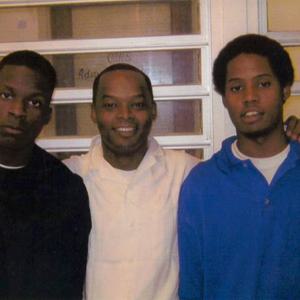On March 2, the U.S. Supreme Court will hear oral arguments in District Attorney’s Office v. Osborne concerning a defendant’s right to post-conviction DNA testing. In this non-capital rape case, Alaska has repeatedly refused William Osborne’s request for DNA testing of evidence from the crime scene despite the fact that it would be at no cost to the State, and the fact the evidence could demonstrate Osborne’s innocence of the 1993 rape and attempted murder for which he was convicted. A discussion of the issues in the case by forensic experts and former inmates who were exonerated through DNA testing will be held at Georgetown University’s Law Center on February 26 at 12:30 pm.
The discussion is sponsored by the Mid-Atlantic Innocence Project, the Innocence Project in New York, and the Georgetown University Law Center’s Office of Public Interest and Community Service. Speakers include:
Marvin Anderson, who served 15 years in prison for crimes he didn’t commit. He was exonerated with DNA testing in 2002 – becoming the first person in Virginia exonerated through post-conviction DNA testing.
Bruce Godschalk, who served 14 years in prison for a 1986 rape in Pennsylvania before DNA exonerated him. Godschalk was the first person in the U.S. granted post-conviction DNA testing under federal law (his appeals for DNA testing in state court were denied; his exoneration led Pennsylvania to enact a statute granting post-conviction DNA testing).
Rickie Johnson, who served 25 years at Louisiana’s notorious Angola Farm Penitentiary for a 1982 rape he didn’t commit. Johnson was exonerated in 2008 after the Sabine Parish District Attorney quickly agreed to DNA testing in his case.
Dennis Fritz, who was convicted of murder in Oklahoma and served 11 years in prison before DNA testing exonerated him in 1999. The wrongful convictions of Fritz and his co-defendant, Ron Williamson, are the subject of John Grisham’s best-selling nonfiction book, “The Innocent Man.”
Michele Mallin, who was brutally raped in 1985 when she was a 20-year-old sophomore at Texas Tech. She was the fifth victim of a serial rapist on campus, and she identified Timothy Cole as her assailant. Cole was convicted and sentenced to 25 years in prison. In 1999, Cole died in prison at the age of 39. Last year, Mallin learned about evidence of Cole’s innocence and joined his family in an effort to exonerate him posthumously. Mallin testified at an unprecedented hearing in Austin earlier this month, where a judge recommended throwing out Cole’s conviction.
David Rudovsky, one of the nation’s leading authorities on post-conviction remedies under federal law. Rudovsky is a Senior Fellow at University of Pennsylvania Law School and has written scholarly articles and litigation-related books on criminal law, constitutional criminal procedure and evidence. He recently presented about the Osborne case to a National Institute of Justice conference.
See details on “The Exonerated and the U.S. Supreme Court: What’s at Stake in Osborne,” The Innocence Project, February 26, 2009. See Innocence.
United States Supreme Court
Apr 17, 2024



